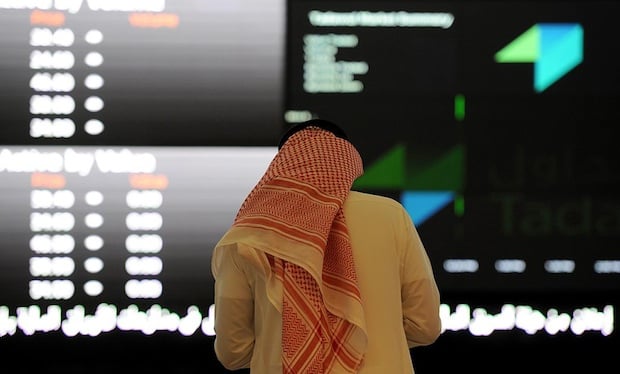
The Saudi Arabian stock market experienced its most significant one-day drop in half a decade on Sunday, erasing more than $133 billion in value due to escalating geopolitical tensions and declining oil prices.
The key index of the Tadawul, known as the Tadawul All Share Index (TASI), dropped sharply by 6.1 percent—over 700 points—to drop under 11,200. This represented the biggest single-day decline since May 2020, prompted by selling activity after a renewed trade conflict initiated by new American import duties.
US President Donald Trump declared a comprehensive 10 percent tariff on goods coming from the Gulf region starting April 5th. He stated this was done to address "misaligned trading tactics." In response, countries including China, European nations, and others imposed reciprocal tariffs. This exchange of economic penalties caused oil prices to plummet to their lowest levels in four years, which had ripple effects through financial markets not just within the Gulf but worldwide.
Saudi Aramco faced the biggest impact during the downturn, with its market valuation dropping by $90 billion due to a 6.2 percent decrease in share prices. Major stocks such as Al Rajhi Bank, ACWA Power, and Saudi National Bank also fell by around 5-6 percent each. In just the opening half an hour of trading, transaction values reached SR2.2 billion, primarily involving shares from Aramco, Al Rajhi, and STC.
Throughout the kingdom, 34 firms listed on both the TASI and the Nomu index reached their lowest points ever. This group encompassed brands such as Herfy Foods, Takween, Entaj, and First Mills. Meanwhile, the Nomu index dropped by 5 percent, breaking its run of five consecutive days of gains, as 13 companies also touched historic low marks.
The impact was felt throughout the area. The Kuwait Stock Exchange saw a drop of 6.6 percent, marking one of its poorest days since the initial stages of the pandemic. Similarly, Qatar’s benchmark lost 5.5 percent, also hitting its lowest point during this period. In Oman, the market dipped by 2.1 percent, whereas Bahrain witnessed a decline of approximately 2.5 percent. Trading remained suspended over the weekend in the UAE; thus, the local markets will likely respond upon reopening today.
Farther away, Egypt’s EGX 30 dropped by 3.6%, causing automatic pauses in trading for 11 different stocks. In Jordan, the market index declined by 2%.
Worldwide, the S&P 500 shed almost $2 trillion in market capitalization on Friday, plunging about 5 percent, marking its most dismal day since the coronavirus-induced sell-off.
Trump’s decision to hike US tariffs to unprecedented levels has sparked concerns about potential widespread disruptions in international trade and supply networks. Analysts caution that the resulting economic impact could be severe and long-lasting.